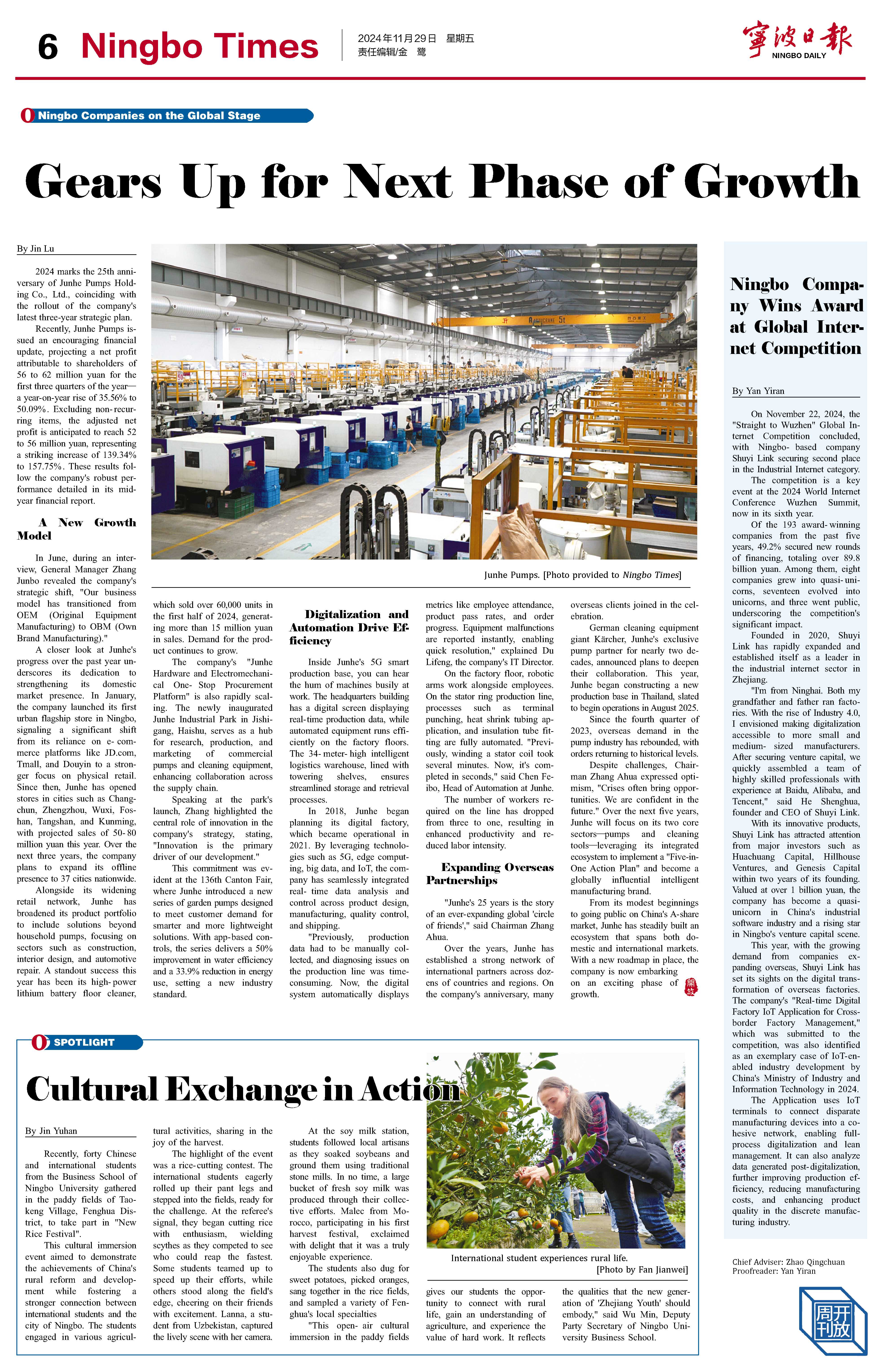By Yan Yiran
On November 22, 2024, the "Straight to Wuzhen" Global Internet Competition concluded, with Ningbo-based company Shuyi Link securing second place in the Industrial Internet category.
The competition is a key event at the 2024 World Internet Conference Wuzhen Summit, now in its sixth year.
Of the 193 award-winning companies from the past five years, 49.2% secured new rounds of financing, totaling over 89.8 billion yuan. Among them, eight companies grew into quasi-unicorns, seventeen evolved into unicorns, and three went public, underscoring the competition's significant impact.
Founded in 2020, Shuyi Link has rapidly expanded and established itself as a leader in the industrial internet sector in Zhejiang.
"I'm from Ninghai. Both my grandfather and father ran factories. With the rise of Industry 4.0, I envisioned making digitalization accessible to more small and medium-sized manufacturers. After securing venture capital, we quickly assembled a team of highly skilled professionals with experience at Baidu, Alibaba, and Tencent," said He Shenghua, founder and CEO of Shuyi Link.
With its innovative products, Shuyi Link has attracted attention from major investors such as Huachuang Capital, Hillhouse Ventures, and Genesis Capital within two years of its founding. Valued at over 1 billion yuan, the company has become a quasi-unicorn in China's industrial software industry and a rising star in Ningbo's venture capital scene.
This year, with the growing demand from companies expanding overseas, Shuyi Link has set its sights on the digital transformation of overseas factories. The company's "Real-time Digital Factory IoT Application for Cross-border Factory Management," which was submitted to the competition, was also identified as an exemplary case of IoT-enabled industry development by China's Ministry of Industry and Information Technology in 2024.
The Application uses IoT terminals to connect disparate manufacturing devices into a cohesive network, enabling full-process digitalization and lean management. It can also analyze data generated post-digitalization, further improving production efficiency, reducing manufacturing costs, and enhancing product quality in the discrete manufacturing industry.


